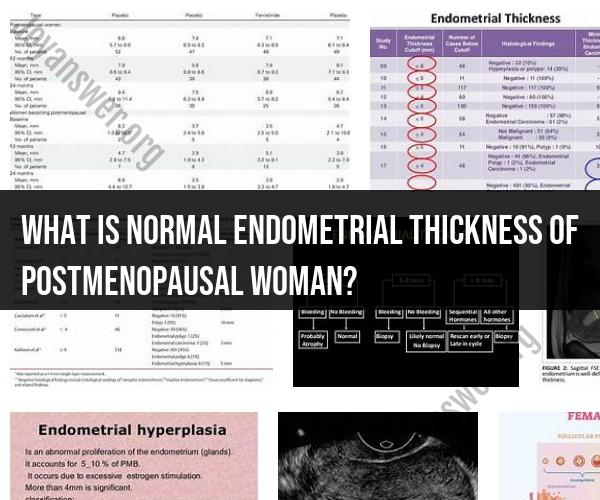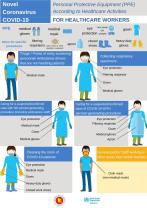What is normal endometrial thickness of postmenopausal woman?
In postmenopausal women, the normal endometrial thickness is typically very thin. After menopause, which is defined as 12 consecutive months without a menstrual period, the endometrial lining (the inner lining of the uterus) undergoes significant changes due to the decline in estrogen levels. As a result, the endometrial thickness becomes minimal.
A normal endometrial thickness in postmenopausal women is often considered to be less than 5 millimeters (mm). Some sources may use a slightly higher threshold, such as less than 4 mm, to define a thin endometrium in postmenopausal women.
It's important to note that while a thin endometrium is considered normal in postmenopausal women, individual variations can occur. The measurement of endometrial thickness is typically done using transvaginal ultrasound, which provides a non-invasive way to assess the thickness of the endometrial lining.
If a postmenopausal woman has an endometrial thickness exceeding the normal range, it may raise concerns and require further evaluation to rule out underlying issues such as endometrial hyperplasia or endometrial cancer. In such cases, a healthcare provider may recommend additional diagnostic tests, including endometrial biopsy or hysteroscopy, to assess the health of the endometrial tissue.
It's important for postmenopausal women to have regular check-ups with their healthcare providers, and any abnormal bleeding or concerning symptoms should be promptly evaluated, as early detection and diagnosis can be critical in managing any potential endometrial issues.
The normal endometrial thickness in postmenopausal women is 5 mm or less. An endometrial thickness greater than 5 mm is considered abnormal and may be a sign of endometrial hyperplasia or even endometrial cancer.
Endometrial hyperplasia is a condition in which the lining of the uterus (endometrium) becomes too thick. Endometrial cancer is a type of cancer that develops in the endometrium.
There are a number of factors that can increase a postmenopausal woman's risk of developing endometrial hyperplasia or cancer, including:
- Obesity
- Tamoxifen use
- Estrogen therapy
- Polycystic ovary syndrome (PCOS)
- Diabetes
- Family history of endometrial cancer
If you are a postmenopausal woman and you have any concerns about your endometrial thickness, please talk to your doctor. They can perform an ultrasound to measure your endometrial thickness and determine if any further testing is needed.
Here are some tips to help reduce your risk of endometrial hyperplasia and cancer:
- Maintain a healthy weight
- Exercise regularly
- Eat a healthy diet
- Limit your alcohol intake
- Get regular checkups from your doctor











